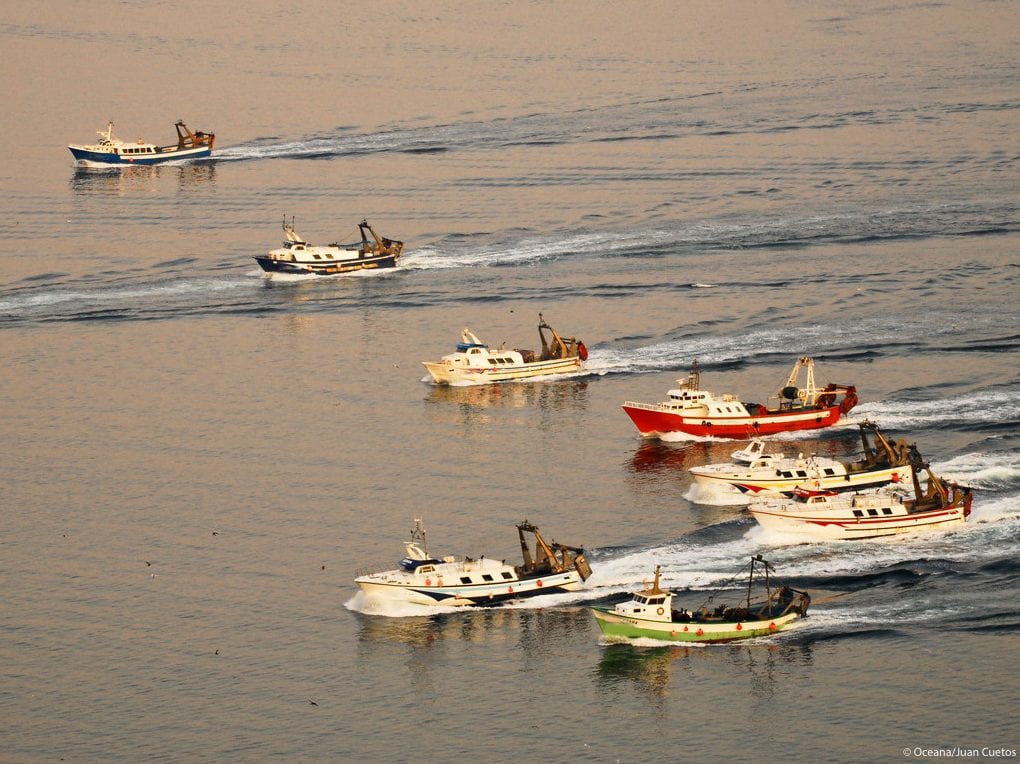Report | June, 2019
Illegal Fishing and Human Rights Abuses at Sea
In this report, Oceana used the Global Fishing Watch mapping platform to analyze the activities of vessels with histories of possible illegal, unreported and unregulated (IUU) fishing, forced labor or human trafficking.
Oceana found that certain behaviors can be associated with a higher risk of IUU fishing and human rights abuses, including:
- AIS Avoidance: A South Korean-flagged fishing vessel, which has a known history of illegal fishing and involvement in human rights abuse cases, appeared to repeatedly stop transmitting its public tracking data, called Automatic Identification System (AIS). Oceana detected 77 gaps in AIS transmissions by the vessel along Argentina’s waters over a nearly five-year period, including four inside its national waters. One gap lasted almost 12 days, ending when the Argentine Coast Guard captured the vessel for fishing illegally inside Argentina’s waters.
- Extended Time at Sea: A Taiwanese-flagged fishing vessel, where an alleged victim of human trafficking died during a 2011 voyage, remained at sea for an extended period of as much as 20 months from 2015 through 2017 while fishing in the South Atlantic Ocean.
- Port Avoidance: A refrigerated cargo vessel was previously identified by the Indonesian government for its association with human trafficking, and in 2017, conducted an illegal transshipment off the coast of Somalia. Subsequently, the vessel moved from port-to-port in an apparent effort to unload its catch and avoid sanctions after several governments shared information about IUU fishing.
Read the Press Release
Read the Fact Sheet
Oceana thanks Liberty Shared for their collaboration in this report, including their in-depth knowledge of transnational human trafficking.
Media Contacts:
Megan Jordan, 202.868.4061, mjordan@oceana.org
Dustin Cranor, 954.348.1314, dcranor@oceana.org




